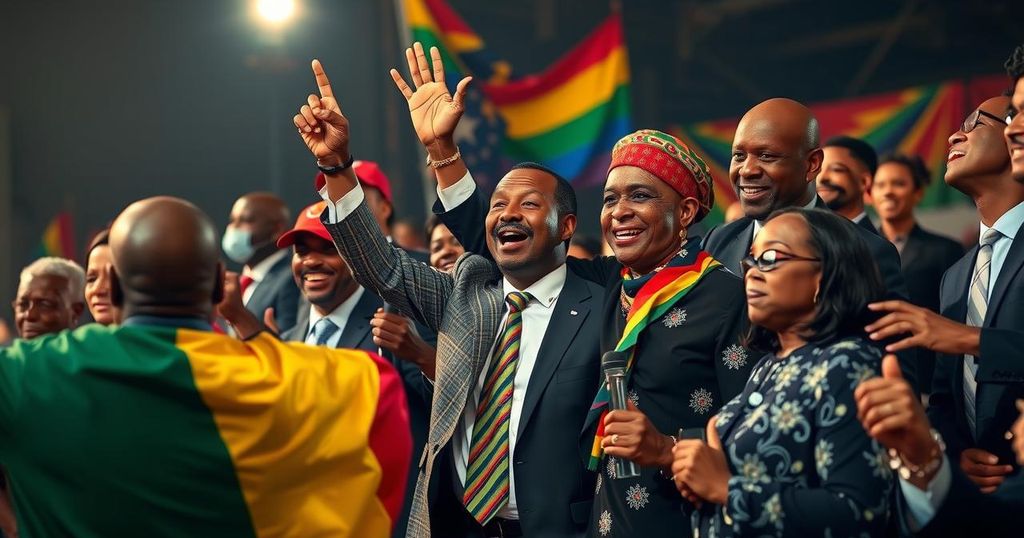Daniel Chapo of the ruling Frelimo party won the presidential election with 70.7% of the vote amid allegations of murder and electoral fraud. Venâncio Mondlane, a significant figure among young voters, came in second with 20.3%. The election was overshadowed by the killings of opposition figures and claims of irregularities by observers.
The recent presidential election in Mozambique has concluded, with Daniel Chapo, the candidate from the ruling Frelimo party, declared the clear winner, securing 70.7% of the vote. This decisive victory comes in the wake of tragic events, including the assassination of two opposition figures, raising serious concerns regarding the integrity of the electoral process. Venâncio Mondlane, a prominent opposition leader whose campaign resonated with the youth, earned 20.3% of the votes, positioning him as the runner-up among the four candidates. The electoral landscape was severely tainted by the pre-election atmosphere, characterized by violence and intimidation. Notably, Elvino Dias, an opposition attorney preparing to challenge the election results, and Paulo Guambe from the Podemos party were killed, an act widely condemned by opposition supporters. Prior to the electoral exercise, allegations surfaced regarding the registration of approximately 900,000 fraudulent voters, further complicating the scenario. Observers, both domestic and international, reported significant irregularities, including ballot stuffing and the unjustified alteration of results. Facing ongoing economic challenges, exacerbated in part by past corruption scandals involving hidden loans, the voter base has shown increasing frustration. Mondlane, appealing to a predominantly young electorate, recently advocated for peaceful demonstrations, emphasizing a collective call for change, stating emphatically, “The time has come for the people to take power and say that we now want to change the history of this country. There won’t be enough bullets for everyone, there won’t be teargas for everyone, there won’t be enough armoured vehicles.” In light of these developments, Zenaida Machado from Human Rights Watch has urged authorities to safeguard the rights of protesters and investigate any instances of violence or arbitrary arrests, highlighting concerns regarding the behavior of security forces in previous demonstrations. The political climate in Mozambique remains tense, with the ruling party’s long-standing grip on power being challenged amid calls for reform and accountability.
Mozambique has been under the political dominance of the Frelimo party for nearly fifty years. The nation is grappling with the ramifications of historical corruption, notably a $2 billion scandal revealed in 2016, which led to the International Monetary Fund and other financial institutions withdrawing their support. The socio-economic environment, combined with a young demographic yearning for change, places the country at a crucial juncture in its political trajectory. The recent presidential elections reflect these underlying tensions, with significant allegations of electoral malfeasance and violence overshadowing the legitimacy of the results.
In conclusion, the recent presidential election in Mozambique, marked by high voter turnout for the ruling Frelimo party, has been marred by serious allegations of electoral fraud and violence. The assassination of opposition members has further escalated concerns regarding the transparency of the electoral process. The call for peaceful protests by the opposition leader aims to galvanize the youth towards a demand for change, highlighting the critical need for accountability and political reform in Mozambique’s future.
Original Source: www.theguardian.com






